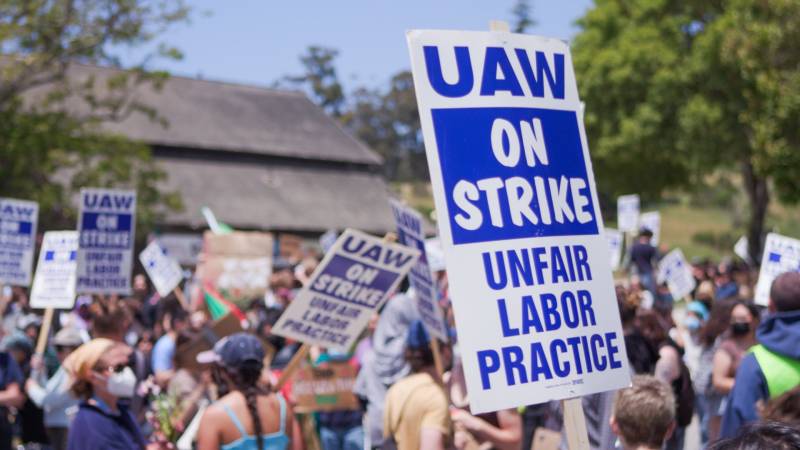It’s not clear how long it will last or when other campuses will be called on, but in a video last week calling on UC Santa Cruz student workers to pause all teaching and research work starting Monday, UAW 4811 President Rafael Jaime told others across the UC system to “stand by and prepare to stand up if your campus is called.”
Jess Fournier, the recording secretary for UAW 4811 at UC Santa Cruz, called the rolling strike a strategic move on the part of the union.
“This is very highly effective in the auto industry, and I think that one of the things that makes a strike in higher education unique is that often walking off the job for a single day does not create the kind of immediate stoppage in work [as in other industries],” they said.
Some campus groups, however, have called on the union to enact a much wider strike immediately. Rank and File for a Democratic Union, a group of UAW 4811 members at UCLA, released a statement on Monday urging the union to be “serious about causing ‘maximum disruption and chaos’” by calling a strike at their campus, which has the largest student population in the UC system.
“Our actions must not be delayed, tempered, or symbolic. We affirm our strike readiness by taking action NOW,” the group said in a statement on X, formerly Twitter.
The University of California Students for Justice in Palestine also urged the union to “immediately call a strike at all University of California Campuses” in a social media post.
“UAW 4811 leadership must support the demands of their rank-and-file workers and the broader grassroots movement for liberation,” the group said.
However, questions remain about wider support for the strike among the union representing UC academic workers. Although 79% of voting members supported authorizing a strike, voter turnout was low. Only about 19,780 of UAW 4811’s approximately 48,000 members cast ballots, compared with more than 36,000 academic workers participating in the union’s 2022 strike authorization vote during its collective bargaining process with the university system.
The University of California has also filed an unfair labor practice suit against the union, calling the strike illegal.
“UAW’s decision to strike over nonlabor issues violates the no-strike clause of their contracts with UC and sets a dangerous and far-reaching precedent that social, political and cultural issues — no matter how valid — that are not labor-related can support a labor strike,” Melissa Matella, associate vice president of systemwide labor relations, said in a statement on May 16.

